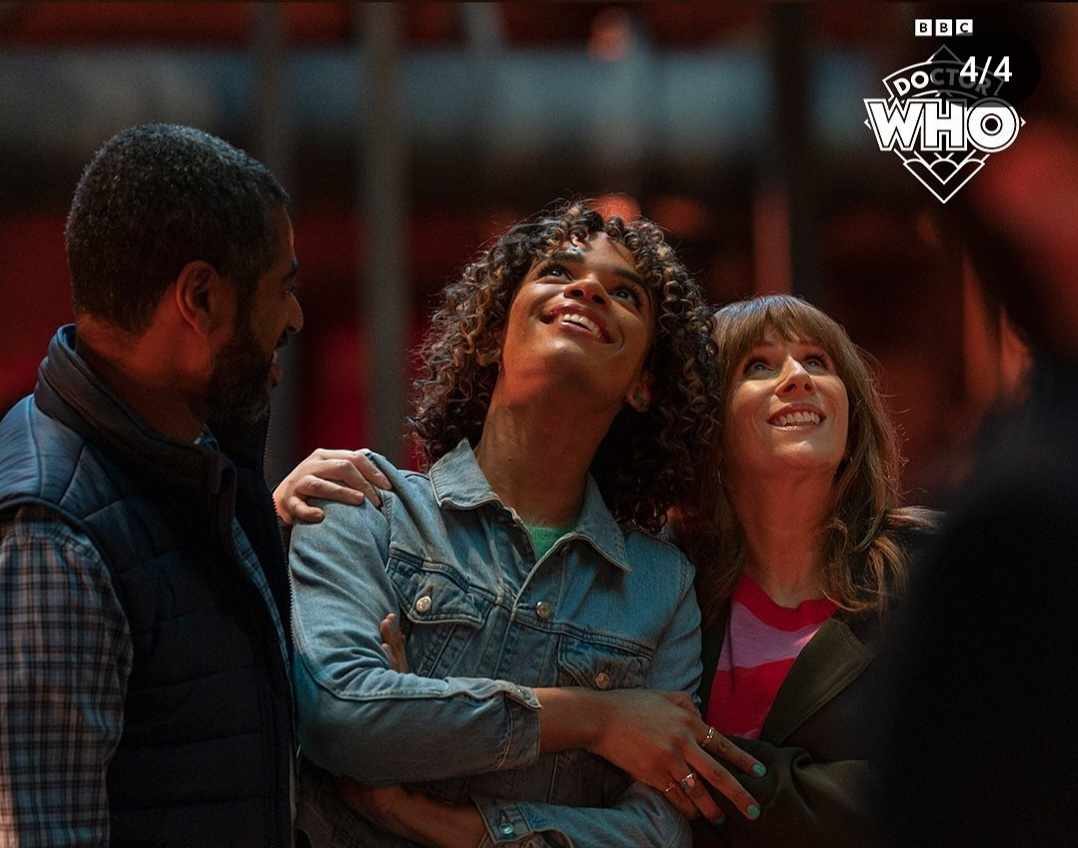
TV Writer Alistair Porteous comments on the transgender inclusivity of Doctor Who’s holiday specials, demonstrating that the show has always been a place for diversity and queerness
When Heartstopper actress Yasmin Finney was announced as playing a character named ‘Rose’ in November’s Doctor Who specials, the world had a lot to say. Many fans and viewers supported this casting, understanding the importance of the inclusion of a trans character, especially as Doctor Who has always had a large queer fanbase. Unfortunately, there was also a backlash to the addition of the character. The BBC received 144 complaints, with people citing the inclusion of a trans character as ‘inappropriate’.
Doctor Who shows no sign of backing down or changing its message and direction
This backlash is part of a wider discourse over the show’s direction to a more diverse cast. When it was announced that Sex Education actor Ncuti Gatwa and RuPaul’s Drag Race legend Jinkx Monsoon would be joining the cast, online trolls criticised the apparent ‘wokeness’ of the new series, claiming that the show has changed in recent years. Criticisms such as these have been constantly levelled against media representing and casting more inclusively. Despite this criticism, Doctor Who shows no sign of backing down or changing its message and direction. Showrunner Russell T Davies said in response to trolls, “Shame on you, and good luck to you in your lonely lives.” Davies has constantly been an outspoken member and supporter of the LGBTQ community, and he has made it clear that trans people will never not be welcome in Doctor Who.
…since its revival in 2005, Doctor Who has been an inclusive space for all of the queer community
What I personally have found difficult to understand about the backlash, is the claim that Doctor Who has become woke, as if it has not always been ahead of its time. Especially since its revival in 2005, Doctor Who has been an inclusive space for all of the queer community, with many examples of representation. In the second episode of Series one, the character Cassandra (Zoë Wanamaker) casually comments on having grown up “a little boy.” In the ninth episode of the series, we are introduced to companion Captain Jack Harkness (John Barrowman), a sexually fluid time-agent, who makes several references to his relationships with men, and who even shares a kiss with the Doctor (Christopher Eccleston) in the series’ two-part finale. Yes, representation has become more overt in the new series, but there has been no significant departure from the show’s commitment to representing LGBTQ people in the last nearly twenty years.
Media can be a refuge for minorities, for any child or adult that does not often see people like them in their real lives
But why is this sort of representation so important? For a start, in the digital age, television and media provides the foundations of a worldview for children and young people. Television introduces them to the types of people they might encounter as they grow up. It shows them the type of person that they might become themselves, or the type of person that they already are. Media can be a refuge for minorities, for any child or adult that does not often see people like them in their real lives. This is especially the case for trans people, whose very existence is constantly questioned and challenged in the political and cultural spheres. The frustration that trolls and critics of diverse casting feel, no doubt comes from a lack of understanding, but also from a fear of not seeing themselves represented in their favourite shows.
For the BBC and Doctor Who to take such a strong stance in regards to the casting of trans actors will mean a lot to the large number of LGBTQ fans. And it must be said that the reaction to Finney’s character has been largely positive. Doctor Who has been a safe space for me, to all other LGBTQ viewers, and to everyone else that has watched it since its 1963 debut. For me, there is no reason why it cannot become even more of one for trans people as they face increasing difficulty with their frequent vilification politically and in other media. In any case, the Doctor has faced far worse than a transphobe or two. We all have a right to see ourselves on TV, we should all have a chance to jump into the Tardis and escape the isolation of our daily lives on a Saturday night.
Read other TV articles here:
Review: Doctor Who – ‘Wild Blue Yonder’
Comments